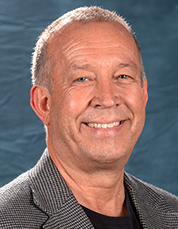
Arne Nielsen, PhD
Vice President of Education
Adventist Education:
A Worldview Toward Shaping Hearts and Minds
welcome
Welcome!
“The first great lesson in all education is to know and understand the will of God.”
A worldview serves as a conceptual tool or framework for perceiving and interpreting reality, which, then, informs an organization's philosophy, mission/vision, and goals. From its inception, the Seventh-day Adventist church has held a unique philosophy and mission of education. Ellen G. White describes this when she states, "In the highest sense the work of education and the work of redemption are one, for in education, as in redemption, other foundation can no man lay than that is laid, which is Jesus Christ."1
The Spirit of Prophecy provides numerous books and general statements of educational philosophy that Adventists believe are inspired by God. These books provide insight such as: "The first great lesson in all education is to know and understand the will
of God”2; "Since God is the source of all true knowledge, it is, as we have seen, the first object of education to direct our minds to His own revelation of Himself”3; and "Our institutions must be conducted on Christian principles if they would triumph over opposing obstacles."4
Adventist Education has progressed over the past 170 years based on biblical teachings and the writings of Ellen White, covering philosophical concepts like: the origins of the physical world, the nature of man, knowledge and truth, educational excellence, religion in education, and the integration of faith and learning. George Knight expresses that "a major task of educational philosophy is to help educators think meaningfully about the total educational and life process so that they will be in a better position to develop a consistent and comprehensive program that will assist their students in arriving at their desired goal."5 Today, this is done through the lens of contemporary education pedagogy that supports traditional Adventist core values, mission, and philosophy.
Historically, Adventist schools have had excellent curricula, but it is the teachers who are the living curriculum. Nina Atcheson, author of secondary Encounter Bible, expressed to me that teachers “live and breathe their own walk with Jesus and ultimately teach from the overflow of their time with Him.” From the Cognitive Genesis study, we know that when children see spirituality modeled by three significant adults in their lives, they are much more likely to grow an authentic love for Jesus, themselves. I am thankful that teachers in Adventist schools often become one of those significant adults. Prayers and courage as you finish out the school year in a partnership with Him.
Blessings!
Arne Nielsen, PhD
NAD Vice President of Education
1Ellen G. White, Education (Mountain View, Calif.: Pacific Press Pub. Assn., 1903), p. 30.
2Ellen G. White, Councils to Parents, Teachers, and Students (Mountain View, Calif.: Pacific Press Pub. Assn., 1913), p. 447.
3Ellen G. White, Education (Mountain View, Calif.: Pacific Press Pub. Assn., 1903), p. 16.
4Ellen G. White, Testimonies for the Church, vol. 6 (Mountain View, Calif.: Pacific Press Pub. Assn., 1901), p. 145.
5George Knight, Philosophy and Education: An Introduction in Christian Perspective (Berrien Springs, MI: Andrews University Press, 2006), p. 5.
Spring 2023
